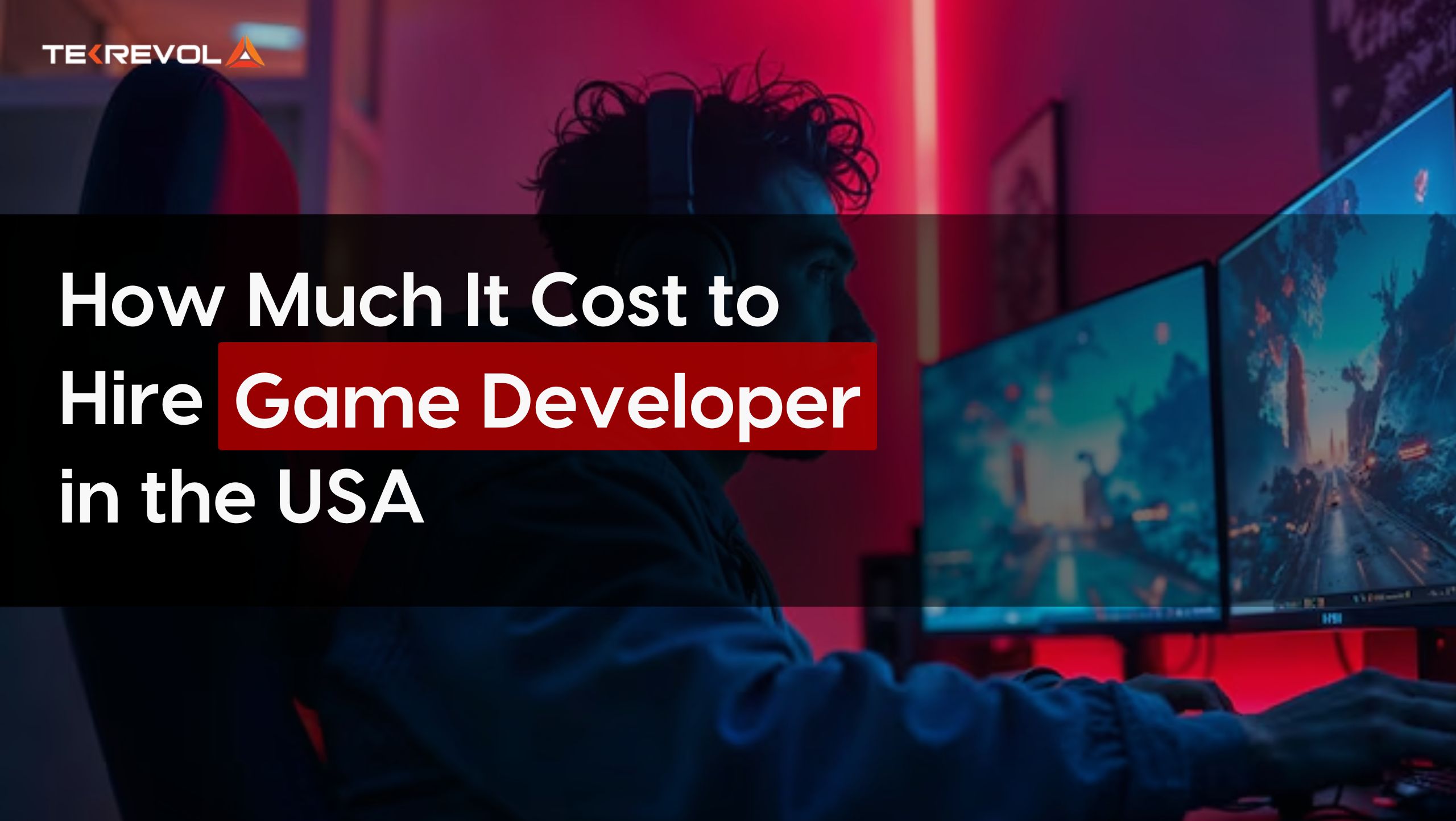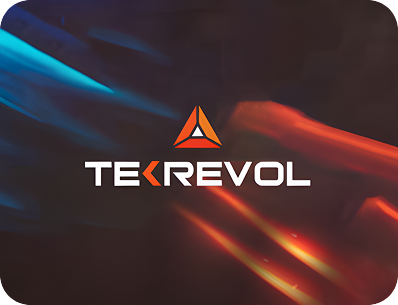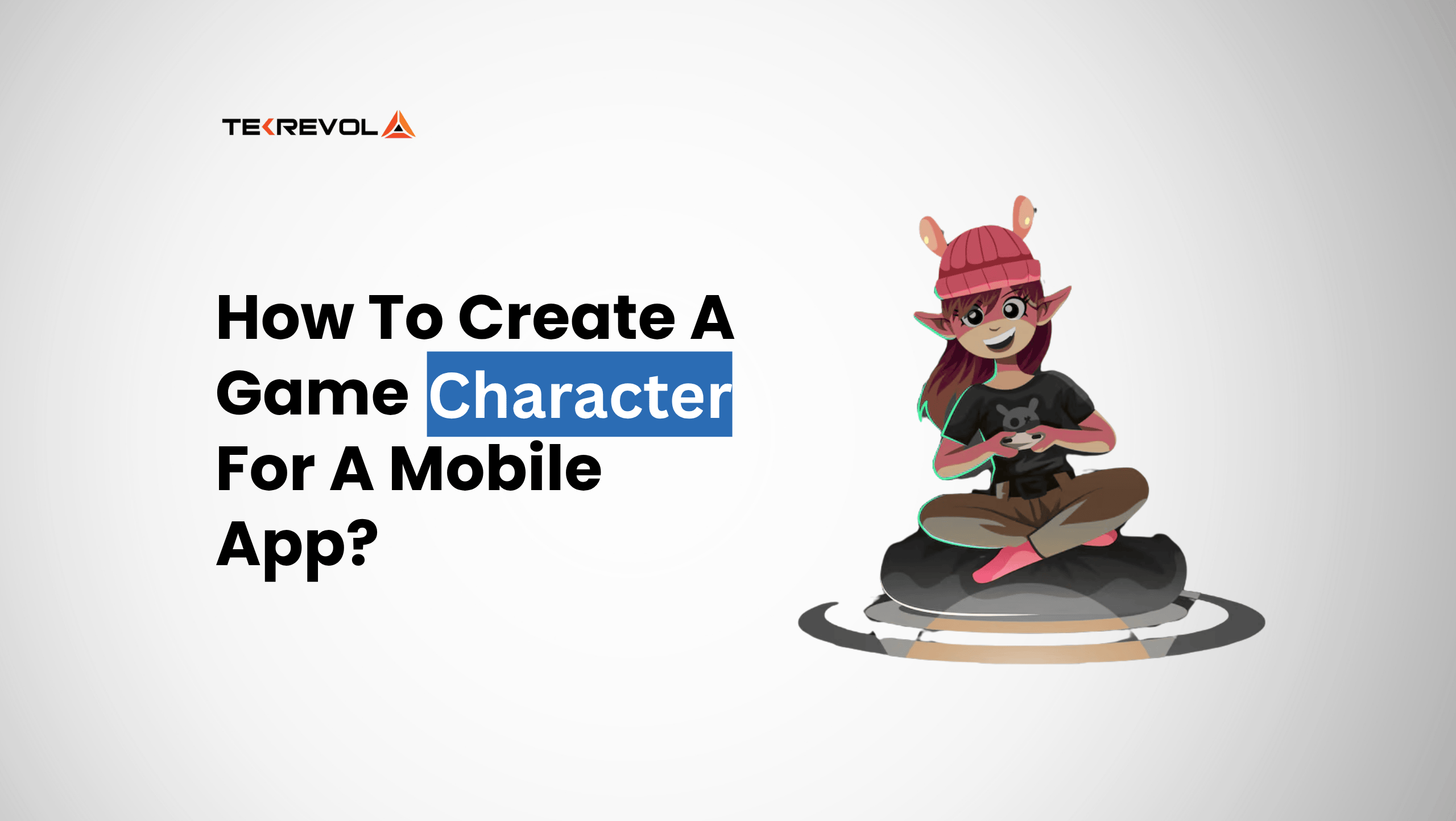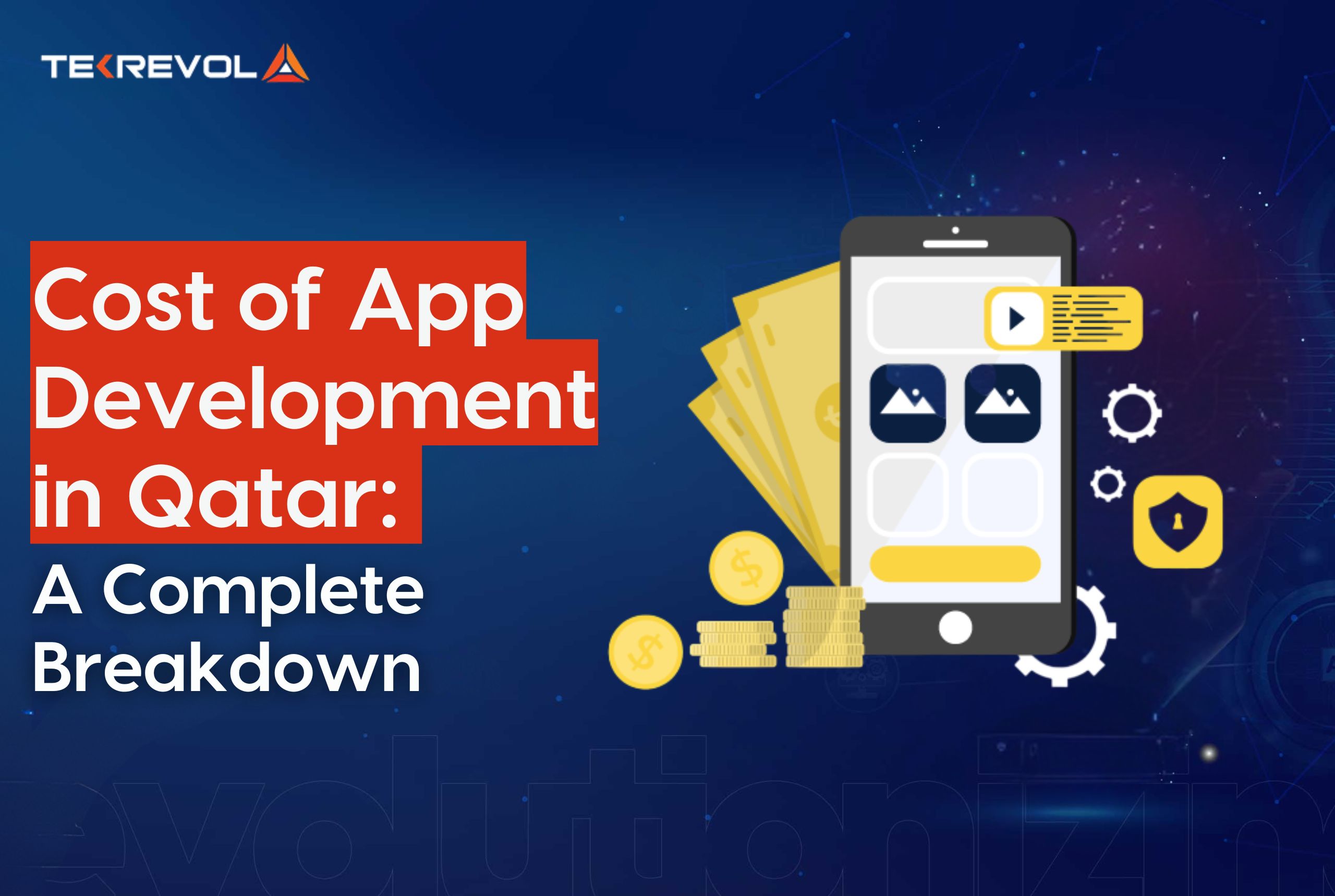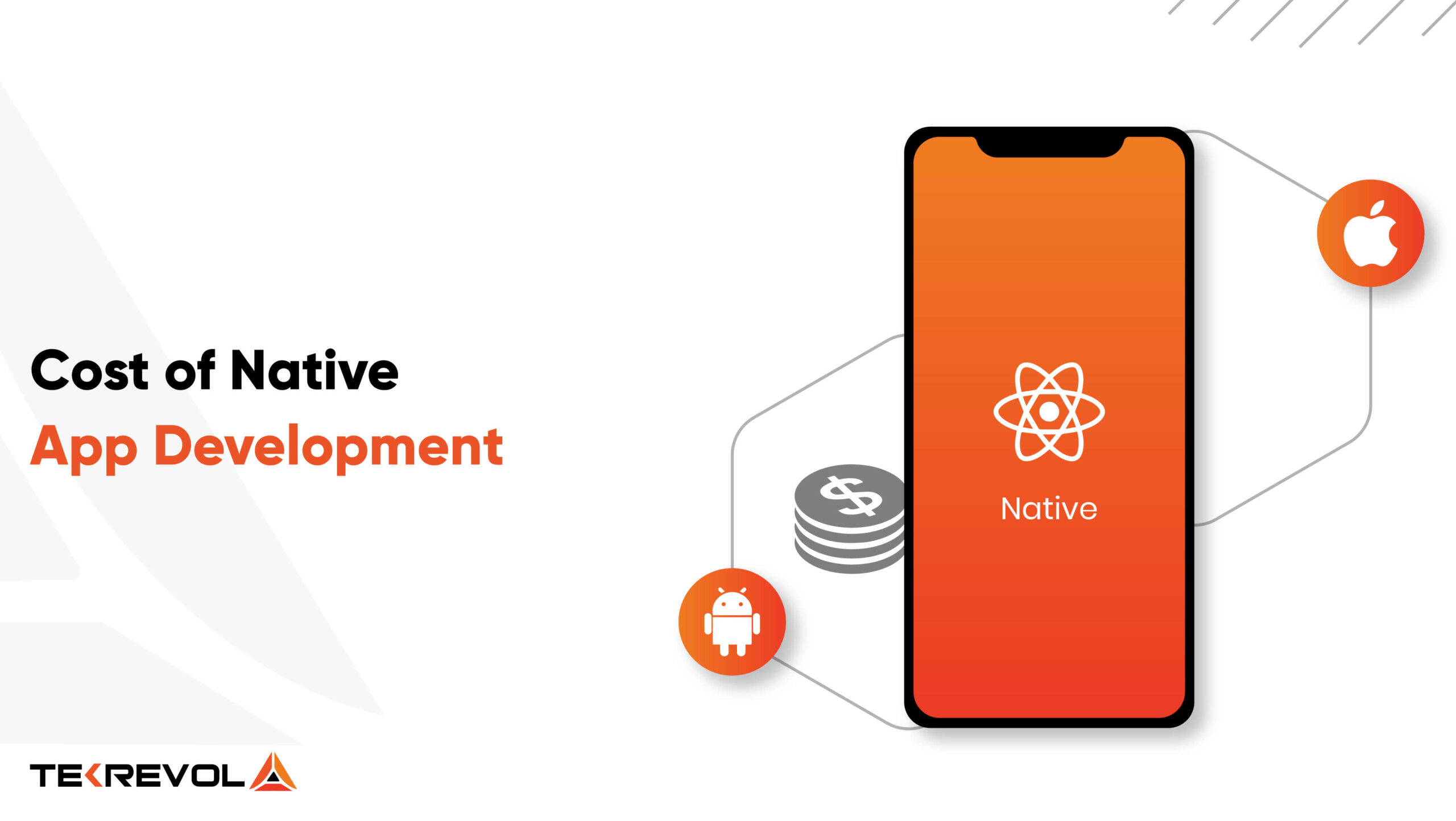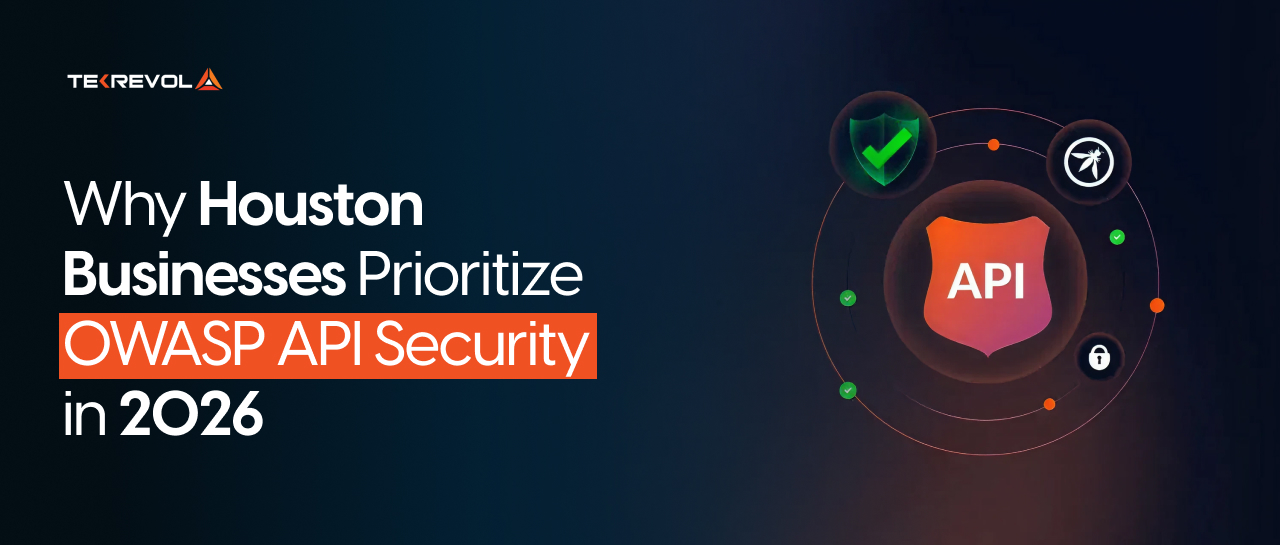If you think hiring a game developer is as easy as clicking “download,” well, you’re in for a surprise!
Building a game is more like assembling a giant Lego castle, except the pieces move, fight monsters, and sometimes crash unexpectedly. With the gaming industry booming in the USA, startups and enterprises alike are eager to hire game developers who can bring their visions to real, playable fun.
Because good talent isn’t cheap, knowing how much to pay game developers upfront is a smart move. It helps you plan your budget and dodge those “uh-oh” moments later.
So, ready to level up your game development knowledge? This guide breaks down exactly how much it costs to hire game app developers in the USA, what affects those costs, and how to pick the right person for your project.
Let’s get you set up to launch your game without any surprises.
Why Hiring Game Developers Is a Strategic Move in 2025?
Instead of just coding your vision, the right developer helps shape the entire gameplay experience. That’s why companies are no longer recruiting reactively; they hire game developers as long-term creative partners.
Here’s why strategic hiring is no longer optional but is essential today.
- The gaming market is huge: In 2025, the USA gaming industry is expected to be worth over $65 billion. That’s a massive opportunity for startups and enterprises alike.
- Mobile games are ruling the charts: Millions play games on their phones every day. If you want to tap into that, hiring a developer who knows mobile game development inside out is key.
- New tech is shaking things up: Virtual reality, augmented reality, and AI aren’t just buzzwords. They are shaping the future of gaming. When you hire video game developers with experience in these areas, your game gets that cutting-edge edge.
- Competition is fierce: More games mean more competition. The right developer won’t just build your game; they will help it stand out.
Bottom line: Hiring the right person isn’t just a checkbox. It can make all the difference in how your game performs.
- Not sure where to start?
- We have helped founders just like you go from idea to launch.
What Factors Affect the Cost to Hire Game Developers in the USA
Not all game projects cost the same, and neither do the developers behind them.
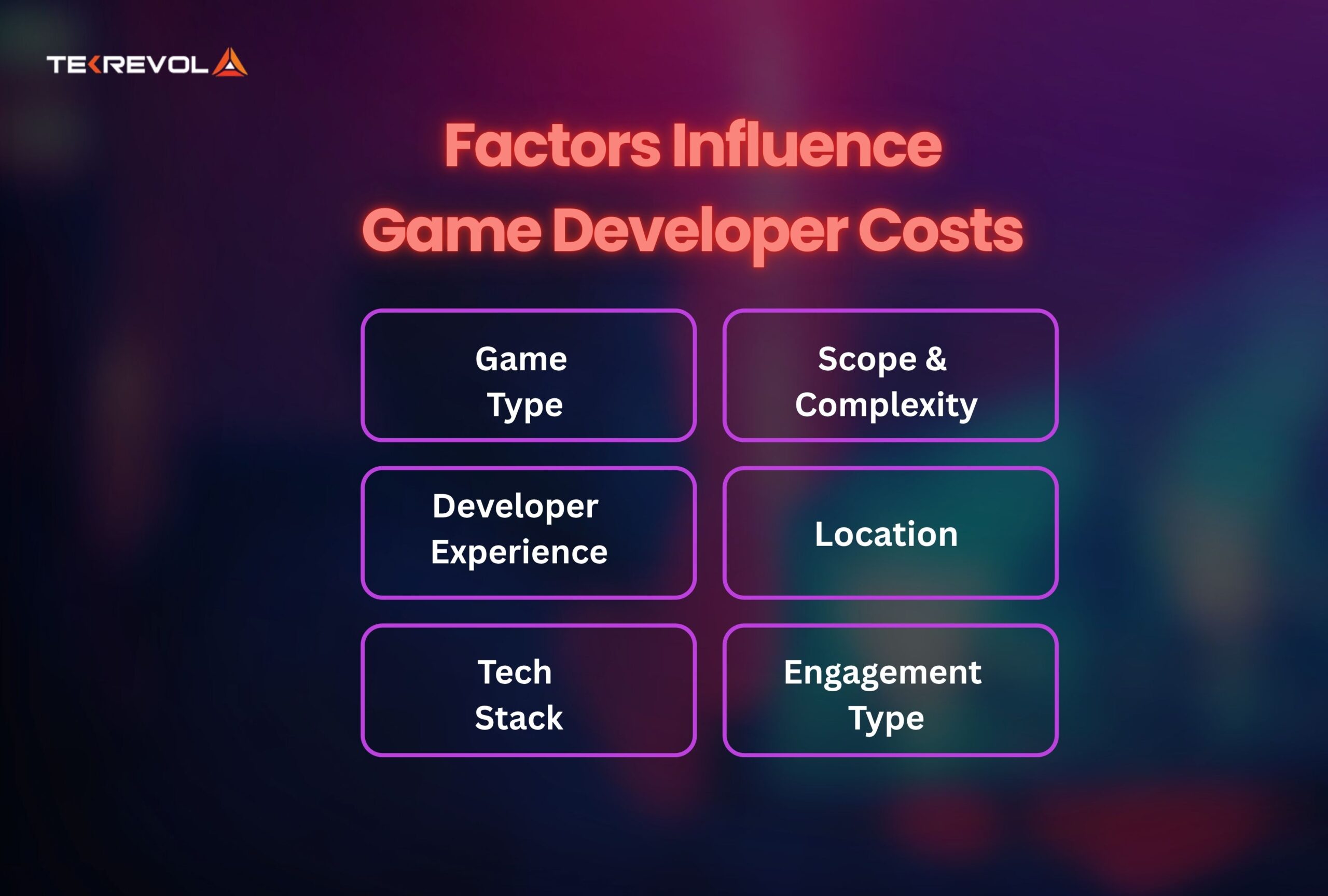
Whether you’re building a casual mobile game, a VR epic, or something innovative like a blockchain-based project with Revol Games, the answer to how much it costs to hire a developer in the USA depends on the complexity, tech stack, experience level, and even where your dev team lives.
Let’s unpack what drives those numbers up or down.
Game Type: Mobile, 2D, 3D, Console, VR/AR, Metaverse
The kind of game you want makes a huge difference. Simple 2D mobile games usually cost less, while complex 3D console titles or VR/AR games can push costs way up. Interested in creating metaverse gaming experiences? That’s a whole new level of complexity with its pricing.
Scope & Complexity: MVP vs Full-Fledged Game
Are you starting with a Minimum Viable Product (MVP) to test your idea, or planning a full-featured game packed with levels, characters, and multiplayer modes? Bigger scopes mean more hours, which means higher costs.
Developer Experience: Junior, Mid-Level, Senior, Specialist
Experience doesn’t just change the hourly rate; it changes outcomes. Junior developers might charge $25–$40/hr but need guidance.
Senior or specialized devs (Unreal wizards or C++ pros) may run $80–$150/hr, but they’ll solve complex problems without breaking a sweat.
So, how much to hire a programmer depends on the level of skill you need.
Location: USA vs Asia, Eastern Europe, Latin America
Rates also swing dramatically by geography.
US-based developers are the priciest (think $80–$150/hr). India or Eastern Europe? More like $25–$60/hr. Latin America offers a nice middle ground, especially for nearshore collaboration.
However, sometimes paying extra for local talent can mean smoother communication and faster delivery.
Tech Stack: Unity, Unreal, C++, Godot, WebG
The tools and tech you pick for your game also impact the cost. Let say, hiring a Unity developer might cost less than Unreal Engine but more than a C++ specialist. Some tech stacks need niche skills, which can drive the price up.
Engagement Type: Freelancers, Agencies, In-House
Finally, how you hire matters. Freelancers can be cost-effective for smaller projects. Agencies offer full teams and project management, but come at a higher price.
Hiring in-house means more control, but it also comes with more responsibility. You’re not just paying salaries; you’re building a team. That means recruiting the right people, offering benefits, covering software costs, and maybe even figuring out desk space.
It’s a bigger lift, but for long-term projects or studios planning multiple titles, the investment often pays off.
How Much Does It Cost to Hire Game Developer in the USA in 2025?
In 2025, rates for hiring game developers in the USA range widely, from $30/hr for junior talent to over $150/hr for seasoned pros in Unreal or Unity.
But raw numbers don’t tell the full story. The real cost depends on the type of game, your timeline, and the expertise your vision demands.
Here’s a quick breakdown of how much do game developers charge per hour and month. These rates cover everything from basic mobile projects to high-end console and VR game development.
| Developer Type | Hourly Rate (USD) | Monthly Rate (Full-Time) |
| Junior Game Developer | $30 to $50 | $4,800 to $8,000 |
| Mid-Level Game Developer | $50 to $90 | $8,000 to $14,400 |
| Senior Game Programmer | $100 to $150 | $16,000 to $24,000 |
| Unreal Developer | $80 to $140 | $12,800 to $22,400 |
| Unity Developer | $50 to $100 | $8,000 to $16,000 |
Note: Your actual cost depends on the scope, tech stack, and team structure. Use this breakdown as a baseline when planning your project.
What’s the Best Way to Hire Game Developers? Hourly, Monthly, or Project-Based
There’s no one-size-fits-all when it comes to hiring top game developers in the USA.
Some teams thrive on flexible, hourly contracts. Others need full-time firepower or fixed-cost projects with locked scopes. The key is matching your hiring model to your project’s size, pace, and budget, not just the developer’s rate.
Here is how to think about them when budgeting your game:
Hourly
It is perfect for short-term tasks, prototypes, or debugging. You’re only paying for the time the developer spends on your project, which makes it great for flexibility. If you are still shaping the full scope of your game or just need a few quick fixes, go for the hourly model.
Monthly (Full-Time)
When you want a developer fully dedicated to your project, monthly pricing makes sense. It provides consistent progress and faster turnaround, perfect for startups or teams building complex games from the ground up.
Project-Based
Here, you agree on a fixed price for a defined project scope. It’s great when your game idea is clear and finalized. Just keep in mind: changes to the scope can mean extra costs later.
Choosing the right pricing model helps you control expenses while keeping your game development on track.
- Game costs feel all over the place?
- At Tekrevol, we will help you figure out what you need and what you don’t.
Should You Hire Freelancers, Agencies, or Build an In-House Game Dev Team?
Planning to launch a hyper-casual game in six months? You’ll need the right talent, but what is the smartest way to build your team?
Freelancers are cost-effective for short-term tasks. Agencies offer all-in-one solutions. In-house teams provide control but require a long-term investment.
Let’s dive into what each option offers so you can decide what fits your game best.
Freelancers
Freelancers are like solo artists, flexible and often affordable. They are perfect to hire a game programmer for building a specific feature or handling a short-term task. Expected rates range from $30 to $100+ per hour, depending on their skills and experience.
| Pros | Cons |
| Cost-effective for small tasks | Less reliable for long-term projects |
| Quick onboarding | Limited availability and bandwidth |
| Access to niche skills | You handle project management |
Best for startups or founders with tight budgets who need quick, specific help.
Game Development Agencies
Agencies are the full band. They bring diverse talent, proven processes, and project management expertise. When you hire a game app developer through top game development companies in the USA, you get quality, reliability, and faster delivery, but at a higher price.
| Pros | Cons |
| End-to-end services | Higher costs compared to freelancers |
| Experienced teams and specialists | Less control over daily tasks |
| Manage deadlines and quality control | Sometimes slower initial setup |
Ideal if you want a professional, polished game without juggling the details yourself.
In-House Hiring
Building an in-house team is like forming your band; expensive upfront, but invaluable for long-term success. If gaming is your core business, having dedicated developers on your payroll ensures alignment and ongoing innovation.
| Pros | Cons |
| Full control over development | High hiring and overhead costs |
| Deep team integration | Time-consuming recruitment |
| Better for ongoing updates and new projects | Risk if projects slow down |
Perfect for enterprises or studios planning multiple titles or continuous game updates.
Each option has its trade-offs. The best fit really comes down to your project’s size, how quickly you need to move, and how much you are prepared to invest..
How To Budget a Game Development Project in 2025?
Budgeting game development costs starts with knowing what kind of game you’re building and who you’ll need to bring it to life.
And don’t forget, costs can shift dramatically depending on your team size, tech stack, and all those unexpected extras like post-launch updates or app store fees.
Let’s zoom in on what can affect your budget reserved for game developers:
Game Development Cost
Every game has a different scope, and that means different costs. Figuring out what you are building upfront helps you stay on budget and avoid last-minute chaos.
Casual Games
Casual games are simple, quick to play, and don’t require heavy mechanics or long development cycles. Popular examples are match-three puzzles, tap-based runners, or classic arcade revivals.
They are easy to develop and more affordable, with development costs typically falling between $20K and $100K. For indie teams and early-stage studios, they offer a low-risk way to enter the market.
Role-Playing Games (RPGs)
Unlike casual games, Role Playing Games are massive undertakings. They require detailed worldbuilding, character progression systems, and cinematic visuals. As a result, costs can escalate fast, often starting around $150K and stretching beyond $500K, especially when developing large story arcs and custom RPG weapons.
MMOs (Massively Multiplayer Online)
MMOs are the heavyweight category of game development. These games need persistent online worlds, large player bases, and real-time infrastructure. Because of their technical demands and long-term support requirements, development budgets commonly start at $1 million and grow from there.
Knowing which category your game fits into helps set realistic expectations from the start.
Budgeting by Company Size
Your budget also depends on the scale of your company and your business goals.
Indie Developers
Usually working with lean budgets ($20K to $150K), indie teams focus on creative freedom over flashy tech. This is a great fit for passion projects and niche markets.
Startups
Finding the sweet spot between quality and speed is key here. With budgets ranging from $100K to $500K, startups aim to launch a strong game quickly to capture players’ attention and impress investors.
Enterprises
Big companies don’t cut corners. Expect $500K or more as they aim for high-end graphics, AI-driven gameplay, and post-launch support that keeps players coming back.
Your budget should reflect not just what you want to build but also how you want to grow.
Hidden Costs
Game budgets don’t always stop at development. Some costs fly under the radar until they hit your wallet.
Revisions & Tweaks
Small changes after dev starts? They add up fast. Even minor feature updates or bug fixes can bump your budget by 20% or more.
QA Testing
No one wants a buggy game. Solid testing is a must to catch crashes, glitches, and user experience issues before launch.
Post-Launch Support
Your game’s not “done” at launch. Updates, patches, and fresh content drops are key to keeping players hooked long-term.
App Store Fees
Platforms take their cut. Expect Apple and Google to claim 15 to 30% of your in-app purchases or game sales.
Being aware of these can keep your project on track financially.
How to Hire a Game Developer? [Easy Steps]
Finding the right game developer can make or break your project. Whether you are building a casual mobile game or an expansive metaverse experience, here is how to approach hiring smartly.
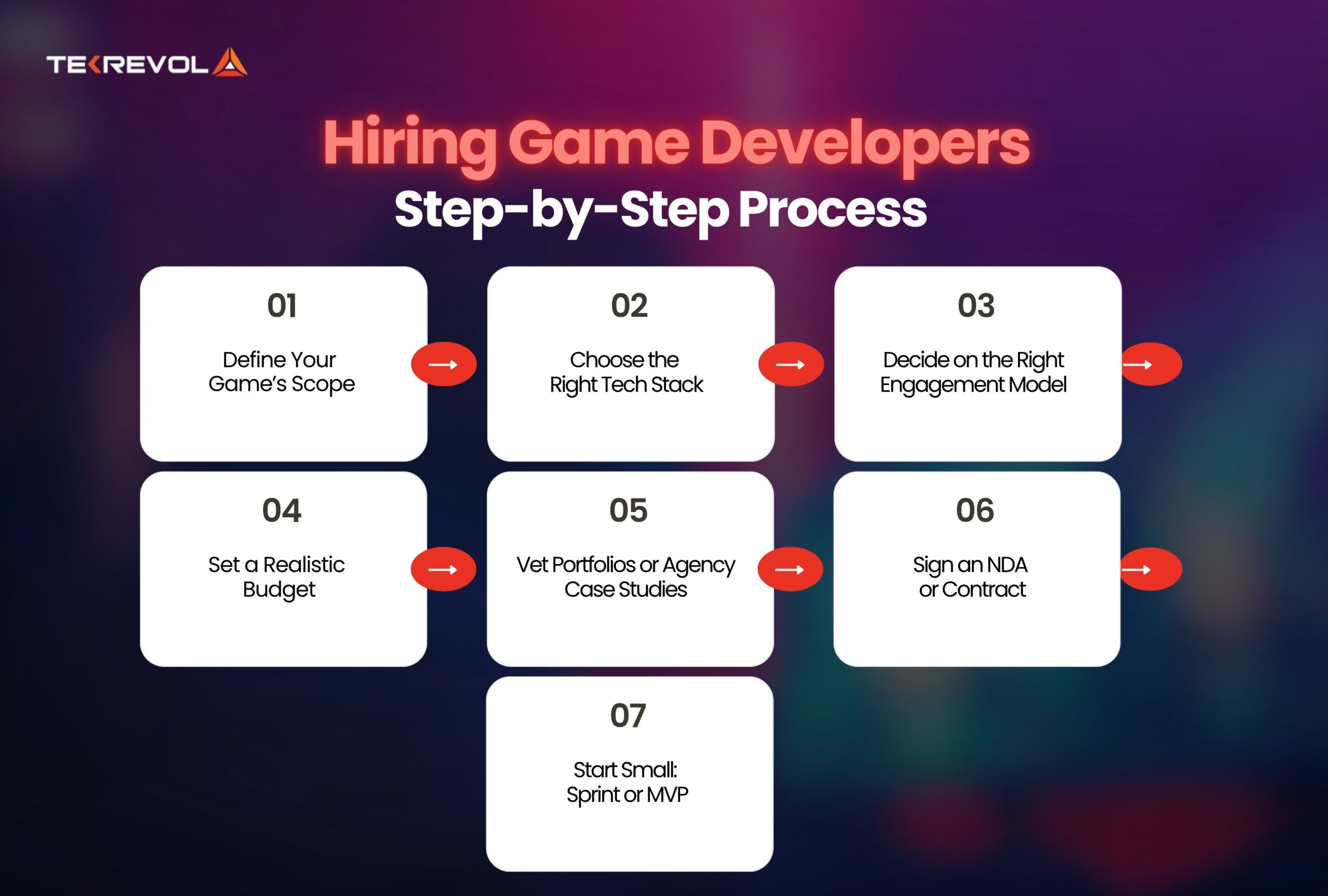
1. Define Your Game’s Scope
Before hiring anyone, get crystal clear on your vision. Are you aiming for a simple mobile hit or something more complex like a 3D RPG? Outline core gameplay, platform targets, desired features, and must-haves vs. nice-to-haves.
2. Choose the Right Tech Stack
Tech drives the experience. Unreal is a powerhouse for console-quality visuals and AAA realism. But when it comes to Godot vs Unity, it is all about tradeoffs: Godot offers open-source flexibility that’s perfect for tighter budgets, while Unity excels at building polished 2D/3D games across multiple platforms.
Bottom line? Your tech stack should match your game’s scope, style, and long-term goals.
3. Decide on the Right Engagement Model
Need something fast and affordable? Go with freelancers. Want full-cycle development and strategy? Agencies are your partner. For full control and long-term vision, consider in-house hiring.
4. Set a Realistic Budget
Outline how much you’re ready to invest across design, development, QA, and launch. Don’t forget hidden costs like app store fees, server infrastructure, and post-launch updates.
5. Vet Portfolios or Agency Case Studies
Look beyond fancy websites. Play their past games, ask about similar projects, and evaluate storytelling, mechanics, and polish. A good portfolio speaks louder than buzzwords.
6. Sign an NDA or Contract
Protect your IP from the start. A detailed agreement helps avoid future disputes, defines milestones, payment terms, rights, and timelines clearly.
7. Start Small: Sprint or MVP
Don’t go all-in on day one. Begin with a sprint or MVP to validate the working relationship, test deliverables, and ensure they “get” your game.
Why Hire TekRevol for Game Development
Building a game isn’t just about finding developers who can code. It is about teaming up with a partner who gets your vision, moves fast, and creates gameplay that players can’t put down.
At TekRevol, we are all about innovative game development. From mobile and AR games to console-quality experiences, we bring together top talent and bold ideas to make sure your game stands out and keeps players coming back for more.
We don’t do generic. We build for impact, backed by a battle-tested process and a portfolio of games that perform.
- Want your game to stand out?
- Our experts know what it takes to win players over on a budget.

